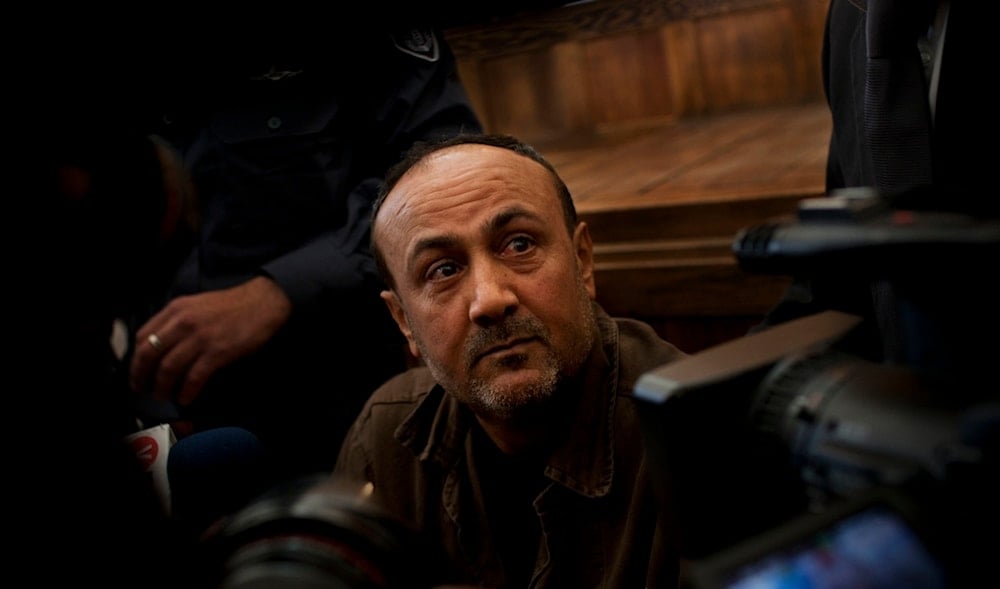'Israel' not to release Barghouti, truce talks 'slow': Israeli media
Israeli media has reiterated the occupation's rejection of the release of Marwan Barghouti, noting that progress remains slow and complicated as mediated negotiations for a ceasefire continue.
-

In this Jan. 25, 2012, file photo, senior Fatah leader Marwan Barghouti appears at a court in occupied al-Quds. (AP)
Israeli newspaper Haaretz denied reports of "Israel" agreeing to the release of Palestinian prisoner Marwan Barghouti in any potential deal with the Hamas Resistance movement regarding the ongoing war on Gaza.
According to the newspaper, the Israeli occupation agreed to release around 200 Palestinian prisoners undergoing life sentences, but a main area of contention between both sides remains the identity of the prisoners.
The occupation has stated that al-Barghouthi and several other prisoners will not be released in a potential prisoner exchange deal, even if they were sent to Iran or Turkiye post-liberation, Haaretz stated, while Hamas rejected the proposition of exile.
Israeli Channel 12 reported on Saturday that "Israel" plans to present a list to ceasefire mediators outlining 70 to 100 "security prisoners" it will not release as part of any agreement with the Palestinian Resistance in Gaza.
The report came after Israeli Prime Minister Benjamin Netanyahu’s statement that "Israel" will not include Marwan Barghouti, a prominent Palestinian leader from the first and second intifada (uprisings), in a potential captive deal.
Israeli officials also confirmed on Saturday evening that Barghouti will not be included in any deal.
Earlier, reports suggested that the release of Barghouti was a key point in the ongoing negotiations over the terms of the captive deal.
'Slow, complex' progress in negotiations
Meanwhile, Israeli newspaper Israel Hayom described the progress of mediated negotiations as "slow and complex."
In its report, Israel Hayom stated that Hamas called for the authorization for its members to leave the Gaza Strip through Egypt to receive medical treatment during the ceasefire, meaning that "tens would be able to leave with Israeli approval, something Tel Aviv does not desire."
The potential deal will be implemented in phases, starting with a humanitarian phase that includes the release of a few Israeli captives, mainly women and the elderly, as well as the bodies of the captives who have died in Gaza.
Hamas has also demanded that the Israeli occupation forces withdraw from the Netzarim and Philadelphi axes, but Israeli soldiers could be re-deployed in these areas.
At the same time, the families of the captives have been expressing their anger and fear of not seeing their loved ones as part of the deal. A high-ranking security source told Israel Hayom that the best option would be to reach a comprehensive deal, but negotiations could continue for several more months.
Therefore, the source noted that it would be better to accept what is currently available and hope for progress during the second phase of the deal.

 3 Min Read
3 Min Read








